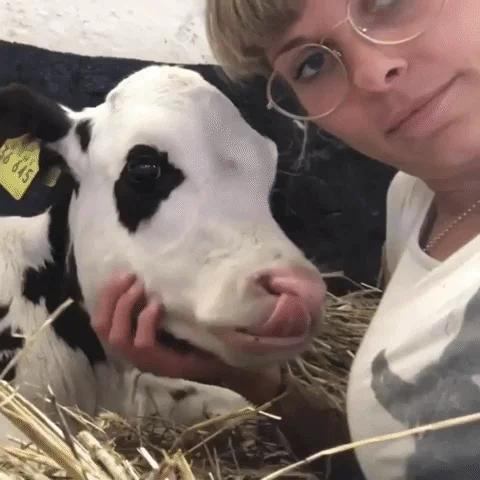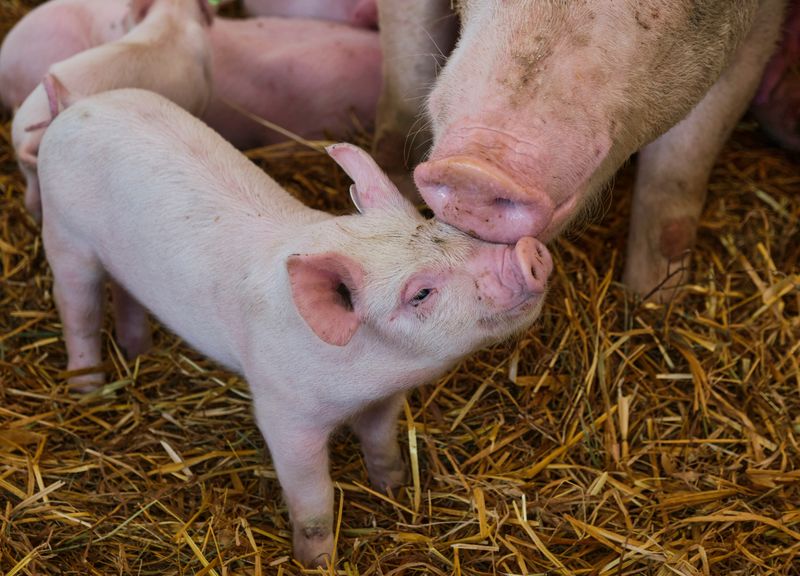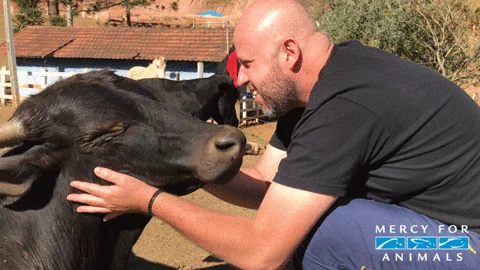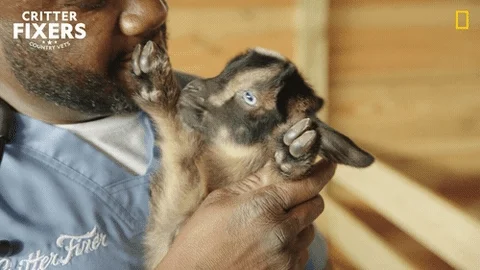Are you a compassionate person who loves farm animals?
Do you enjoy living and/or working on a farm?

If so, you might be an aspiring livestock veterinarian!
What does a livestock veterinarian do?
A livestock veterinarian specializes in treating animals typically found on farms and ranches, such as horses, cows, sheep, goats, and pigs.
 Photo by Stefanie Poepken on Unsplash
Photo by Stefanie Poepken on UnsplashWhat does a typical day look like for a livestock veterinarian?
On any given day, a livestock veterinarian might:
diagnose and treat the illnesses of animals and care for their wounds
prescribe medications, perform surgeries, and attend to births
perform health and wellness exams
provide information and advice to animal owners

How do I become a livestock veterinarian?

Earn a Bachelor's degree in a related field such as animal science, biology, or pre-veterinary medicine.
Attend veterinary school to obtain a Doctor of Veterinary Medicine (DMV) degree. This is typically a four-year program that includes hands-on experience through internships and residency.
Where might I work as a livestock veterinarian?

Private or Group Practice
Travel to farms and ranches to treat large animals.

Pharmaceuticals
Work in veterinary pharmaceutical research to develop, test, and supervise drug production.

Government
Work as a researcher for the Food and Drug Administration (FDA), U.S. Department of Agriculture (USDA), or related agencies.

Academia
Become a researcher and professor at a university's school of veterinary medicine. Serve in classrooms, clinics, and laboratories.
What is the salary of a livestock veterinarian?
 The average annual salary in the U.S. is $114,099 (USD).
The average annual salary in the U.S. is $114,099 (USD).
 The average annual salary in Canada is $103,687 (CAD).
The average annual salary in Canada is $103,687 (CAD).
Is a career as a livestock veterinarian for me?
 You'll love it if you...
You'll love it if you...
have a passion for working with and improving the lives of animals
are a compassionate effective listener and communicator
are willing to travel to farms and work in various weather conditions
 You might not if you...
You might not if you...
are afraid of working with large and sick animals
don't want to go through at least 4 years of vet school after undergraduate studies
don't like working long hours on nights and weekends
Pick the future livestock veterinarian
Maricris

enjoys animals of all sizes
volunteers at animal shelters and farms
likes traveling and being "on the go"
willing to be "on call" and treat animals during emergencies
Jason

enjoys small animals, afraid of big ones
no volunteer experience
prefers to work remotely
plans to work a set schedule: Monday through Friday, 8am-5pm
Quiz
Who would be the best fit for this career?
Take Action

Are you ready to launch your career as a livestock veterinarian?
Your feedback matters to us.
This Byte helped me better understand the topic.
